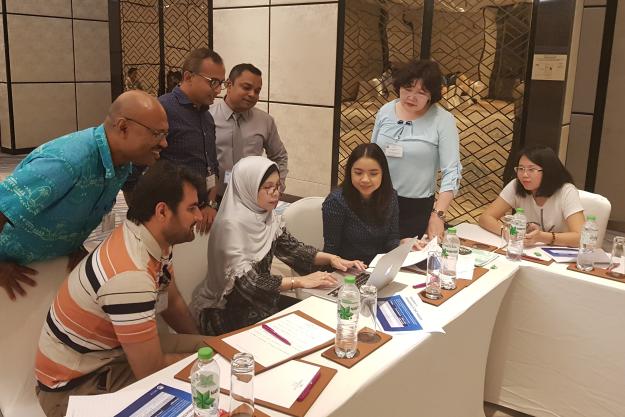
THE HAGUE, Netherlands – 23 July 2019 – Representatives of National Authorities and customs administrations from 14 Asian Member States of the Organisation for the Prohibition of Chemical Weapons (OPCW) met to discuss the transfers regime under the Chemical Weapons Convention (CWC) at a training-of-trainers course held in cooperation with the World Customs Organization in Vientiane, Laos, from 16 – 19 July.
Reaffirming in his opening remarks Laos’ commitment to the CWC, the Deputy Director-General of the Ministry of Foreign Affairs of Laos, Mr Asoka Rasphone, stressed the ongoing threat WMDs pose to international peace and security. He expressed hope that with greater international collaboration, States Parties to the CWC will produce more concerted actions on the sound management of chemicals and ensure that chemistry is only used for peaceful purposes.
OPCW Senior Programme Officer, Mr Pavlo Byalyk, outlined the important role that customs administrations play in the trade control of scheduled chemicals. In addition, he encouraged National Authorities and customs agencies to build strong partnerships for the effective enforcement of the transfers regime.

During the course, participants shared the procedures governing the control of scheduled chemicals. By exchanging experiences and good practices, they cemented their knowledge about the CWC transfers regime, including the tools for identification of chemicals and reporting, as well as discussed plans for introduction of national customs training courses on the CWC.
The key outcome of the course was the development of national action plans for incorporating CWC modules into the participating Member States’ national customs training programmes. The Technical Secretariat will follow up on the progress with all Member States and provide technical assistance.
The course was attended by representatives from Afghanistan, Indonesia, Iran, Laos, Lebanon, Maldives, Marshall Islands, Mongolia, Myanmar, Nepal, Palestine, Samoa, Sri Lanka, and Vietnam.

Background
As the implementing body for the Chemical Weapons Convention, the OPCW, with its 193 Member States, oversees the global endeavour to permanently eliminate chemical weapons. Since the Convention’s entry into force in 1997, it is the most successful disarmament treaty eliminating an entire class of weapons of mass destruction.
Over 97% of all chemical weapon stockpiles declared by possessor States have been destroyed under OPCW verification. For its extensive efforts in eliminating chemical weapons, the OPCW received the 2013 Nobel Peace Prize.
More Information

